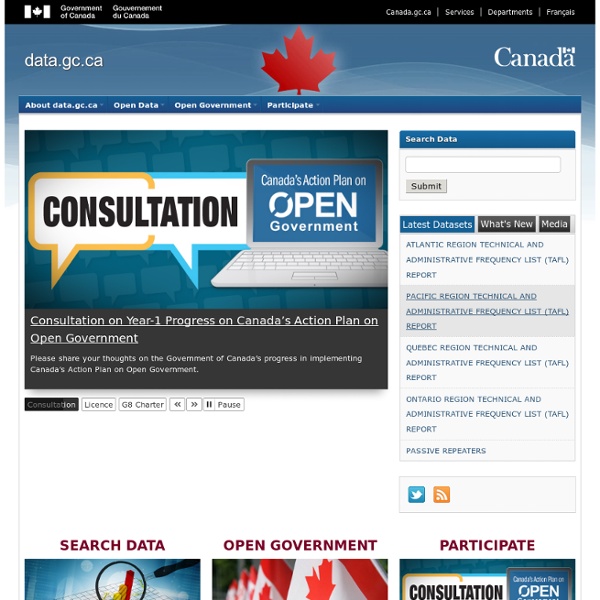Open Data - Open Data Pilot Project - Home

Data.gov
PHP Programming/Data Structures
Variable variables[edit] PHP has a legacy concept called "variable variables". This is an older, more limited programming concept that came before composite data structures were available. Since the PHP language now supports composite data structures, the concept of variable variables is essentially obsolete. The PHP manual states: "Sometimes it is convenient to be able to have variable variable names. This approach has historically been used in programming languages that do not support composite data structures. Moreover, "variable variables" are error-prone and require more maintenance overhead. The Basics[edit] Data structures are the way to represent composite entities using regular PHP variables. Those familiar with database design and database implementation know about the concept of database normalization. Data structures in PHP represent a similar concept. PHP Native Structures[edit] Examples[edit] String Example: Array Examples: PHP Composite Structures[edit] Examples[edit]
Related:
Related:



